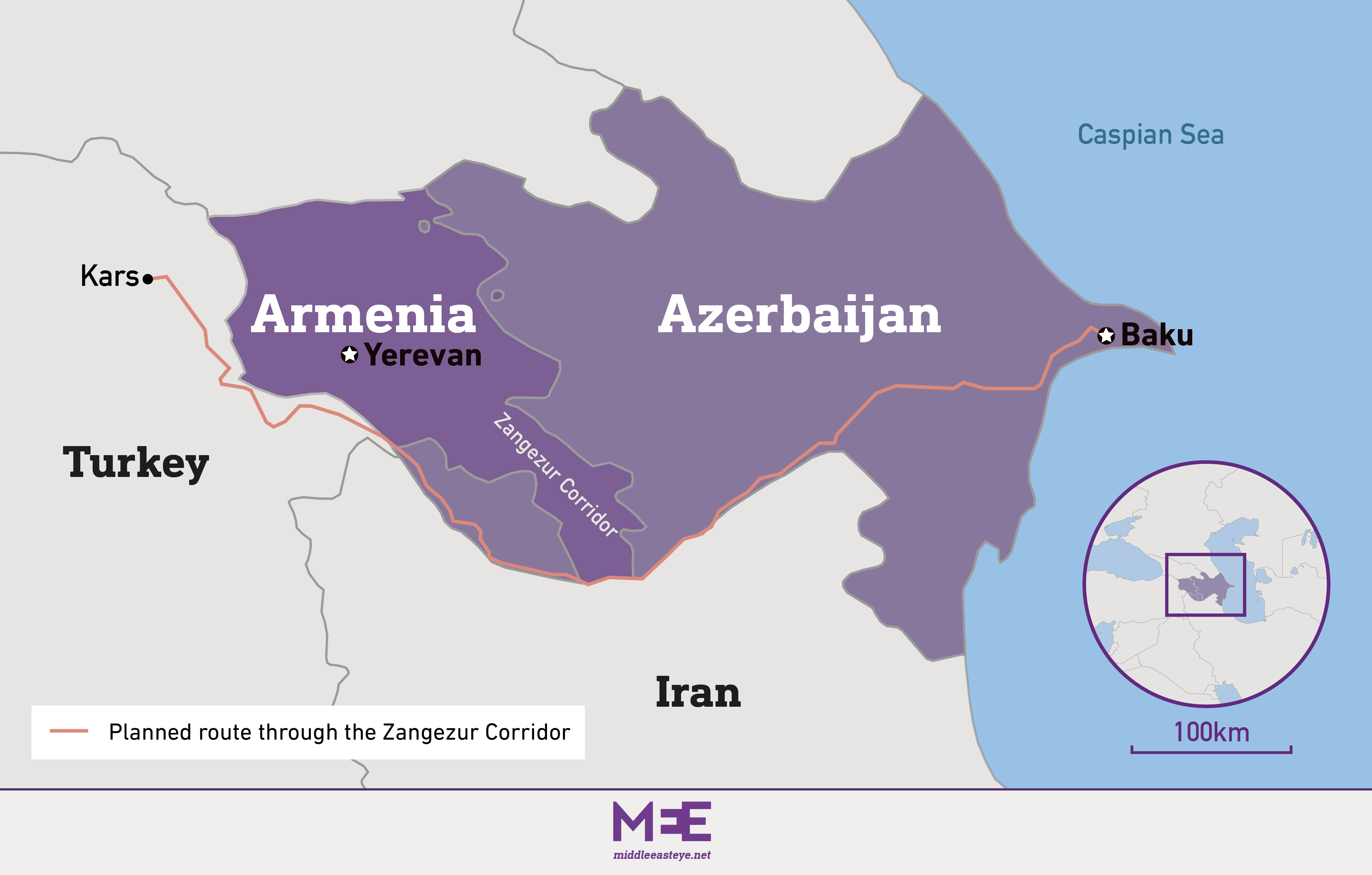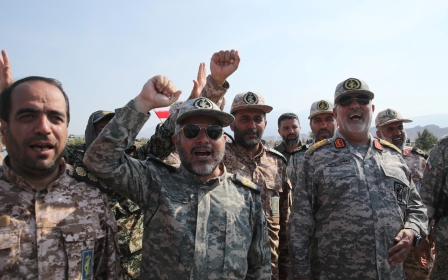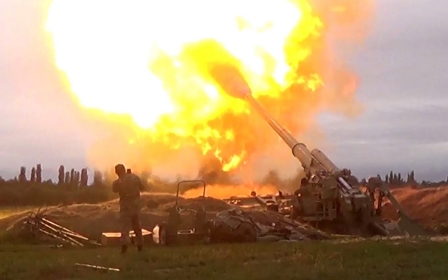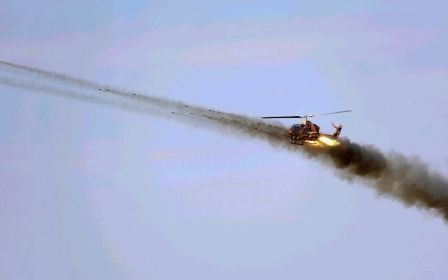Are Iran and Azerbaijan coming to the brink of war?
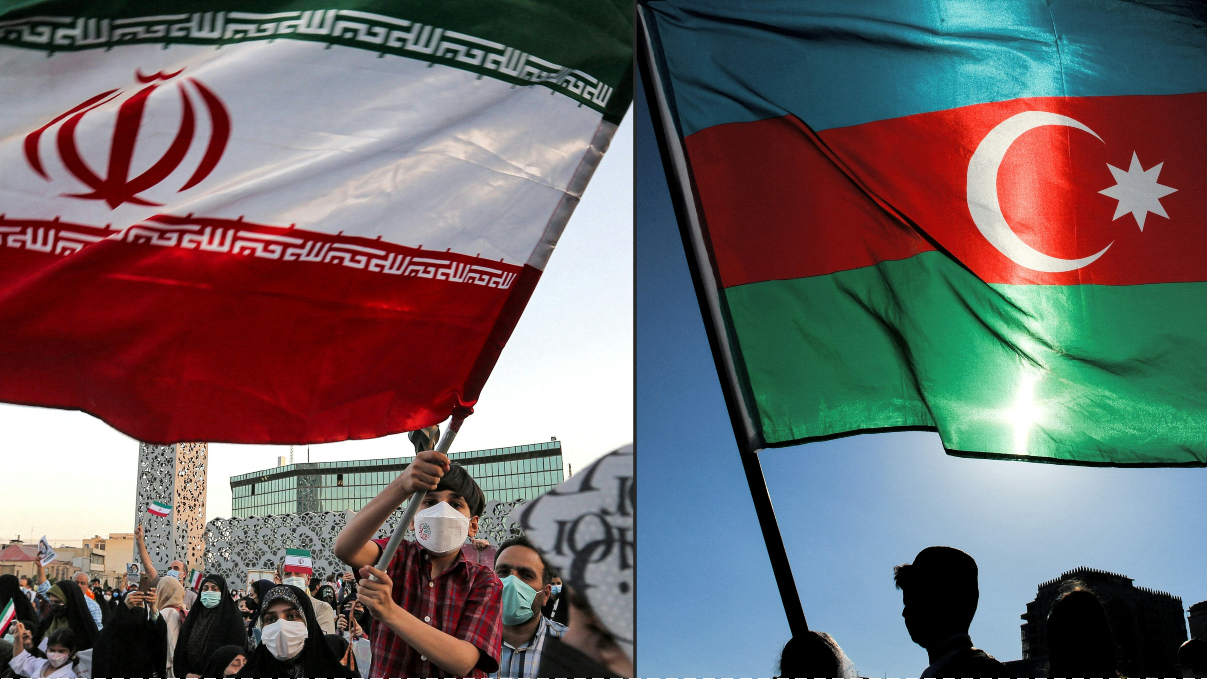
The Second Nagorno-Karabakh War in 2020 and the ensuing ceasefire agreement allowed Azerbaijan to capture significant parts of the disputed region.
Iran did not oppose Azerbaijan’s aggressive approach to restoring its territorial integrity, with Supreme Leader Ayatollah Ali Khamenei explicitly defending Baku’s stance against Armenia. Yet, Azerbaijan has since made a push to seize more territory and fundamentally alter the regional geopolitical landscape - with the help of Turkey and Israel.
Azerbaijan’s strategy faces the greatest regional opposition from Iran, which maintains that Azerbaijan’s postwar position is not consistent with guaranteeing the country’s territorial integrity, but rather with changing international borders and encroaching on Armenian territory.
The previous Nagorno-Karabakh conflict had nothing to do with Azerbaijan’s seizure of Armenian territory during clashes last September. Armenia’s territorial integrity is not recognised by Azerbaijan, and the conflict has created dire humanitarian conditions for those living in the region.
At the same time, Azerbaijan has faced criticism for not fully implementing the 2020 ceasefire agreement. The deal stipulates that Azerbaijan must ensure the safe passage of people, goods, and vehicles along the Lachin corridor, a road that connects Armenia to Nagorno-Karabakh, although a replacement route was to be constructed within three years. Azeris have blocked the Lachin corridor and an alternative route, violating the peace agreement.
New MEE newsletter: Jerusalem Dispatch
Sign up to get the latest insights and analysis on Israel-Palestine, alongside Turkey Unpacked and other MEE newsletters
Despite Azerbaijan’s assertion that Armenia transports weapons into Nagorno-Karabakh via the Lachin corridor, no reliable evidence has been provided to support this notion.
Meanwhile, Azerbaijan says that Armenia must guarantee a connection, dubbed the Zangezur corridor, between Azerbaijan and the Nakhchivan Autonomous Republic, as per the ceasefire agreement. But Tehran fears this route would block the Iran-Armenia border, reducing its geopolitical influence in the South Caucasus.
Since Russia has been apathetic towards Azerbaijan and the US and other European powers have appeased it, Baku thinks that, with the help of Israel and Turkey, it can establish a territorial connection between Azerbaijan and Nakhchivan by military force.
Red lines
Iran has been forced to show its teeth and claws. Its forces have been stationed at the border ahead of potential Azeri military operations, but Tehran is not planning preemptive military action. Rather, it will conduct warning and preventative operations if Azerbaijan crosses geopolitical red lines.
Russia, the guarantor of the 2020 ceasefire agreement, has expressed hope that the tensions between Iran and Azerbaijan can be resolved. The US, meanwhile, considers Iran a “threat” to Azerbaijan and has provided Baku with security aid.
Because Azerbaijan refuses to allow a monitoring mission to be established on its territory, the European Union cannot monitor Azerbaijan’s aggressive behaviour on the ground.
Meanwhile, Israel, which has sent large amounts of military equipment to Azerbaijan in recent years, also reportedly has an airfield in the country, which is ready in case it opts to attack Iranian nuclear facilities.
In Iran’s view, Azerbaijan’s energy resources and transit capacities, as well as its geopolitical position and military power on the borders of Iran and the Caspian Sea, have prompted the US and Europe to adopt a non-confrontational, low-cost policy towards Baku.
In this view, Azerbaijan will be more likely to challenge Iran’s northwestern borders and its Azeri-populated provinces in the future if it can use militarism to conquer neighbouring lands with international impunity.
To this end, Azeri President Ilham Aliyev has publicly declared himself a supporter of the rights of Iranian Azeris, while Azerbaijani media have referred to these communities as “south Azerbaijan”.
If Tehran backs down in the face of Baku’s territorial adventurism, Azerbaijan will likely become more influential and important to the West.
Iran also faces a geoeconomic threat from Azerbaijan’s agenda on its border. Although the 2020 ceasefire agreement stipulates that a connecting route would be established between Nakhchivan and Azerbaijan, Baku envisions a high-capacity corridor. The Zangezur corridor would basically comprise a strategic transit route from Central Asia to Europe via the Caspian Sea and South Caucasus, marginalising Russia and Iran, which have their own vision for a regional trade corridor.
Regional balance
Iran does not oppose the connection of the Azerbaijani heartland to Nakhchivan through Armenian territory, with Tehran having allowed Azerbaijan to use its airspace to reach the autonomous republic. For Iran, rather, the concern hinges on the potential for Baku to exploit the Zangezur corridor for political, economic, and security reasons.
Amid Azerbaijan’s non-compliance with the 2020 ceasefire agreement and its actions around the Lachin corridor, alongside Baku’s close ties with Tel Aviv, Tehran has concluded that Azerbaijan is not a reliable partner. There is a risk that the Lachin scenario could be repeated at some point in future along Iran’s border.
Iran's military capabilities far outweigh those of Azerbaijan, whose security would be fragile in the event of a limited or large-scale conflict
Currently, Tehran’s top security priority is to prevent Azerbaijan from invading southern Armenia and capturing its border with Iran. Among its political priorities are direct negotiations between Armenia and Azerbaijan over Nagorno-Karabakh’s territorial status, and establishing communication lines and borders without the involvement of external European and Nato actors.
Iran is not interested in western-led peacekeeping missions in the South Caucasus. Rather, it would prefer to resolve the crisis via the 3+3 format, involving Iran, Russia, Turkey, Armenia, Azerbaijan, and Georgia.
As for Tehran’s economic priorities, they include equal participation in transit corridors and equitably sharing regional economic interests.
Iran’s macro policy in the South Caucasus is to maintain a regional balance and prevent conflicts and wars. Iran does not intend to escalate tensions with Azerbaijan and launch a military conflict and it recently appointed a new ambassador to Azerbaijan as a sign of goodwill.
From Iran’s standpoint, Azerbaijan’s behaviour is a result of Israeli provocations, and Iran has deployed military forces along its border not to intimidate Baku, but to push Israel back. Iran’s military capabilities far outweigh those of Azerbaijan, whose security would be fragile in the event of a limited or large-scale conflict.
The views expressed in this article belong to the author and do not necessarily reflect the editorial policy of Middle East Eye.
Middle East Eye delivers independent and unrivalled coverage and analysis of the Middle East, North Africa and beyond. To learn more about republishing this content and the associated fees, please fill out this form. More about MEE can be found here.



